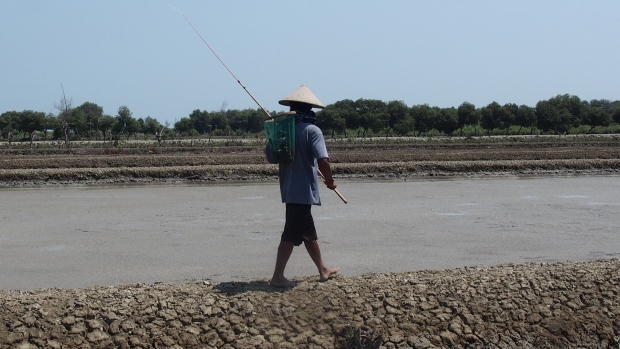Grants :: Medium Grant Facilities :: Introduction of silvo-fishery practice for improving the conditions of coastal communities in Tambak Gojoyo sub-village and Wedung village in Demak Regency, Indonesia
Introduction of silvo-fishery practice for improving the conditions of coastal communities in Tambak Gojoyo sub-village and Wedung village in Demak Regency, Indonesia

Looking for additional income - fisherman in Demak, Demak, Central Java © MFF Indinesia
Objectives
A pilot silvo-fishery demonstration is established and recognized in the Demak Regency for empowering mangrove-dependent communities in Wedung and Berahan villages on sustainable management of mangrove ecosystems.
Background
Demak is affected by sea abrasion (erosion caused by the sea). The damage to the Demak coastline, estimated at 495.80 hectares, is attributed to the beach reclamation. Sea abrasion negatively affects many of community-owned fishponds that are close to the shoreline, leading to the loss of livelihoods for some villagers.
Wedung is one of the villages experiencing the effects of this damage. In the sub village of Gejoyo, in Wedung village, mangrove silvo-fishery is appreciated as a solution to reversing the negative effects of sea abrasion. This MGF project will draw on the experiences of a past MFF small grant facility project implemented by Diponegoro University in 2012. The main approach will be to use the silvo-fishery model alongside community development activities, to strengthen Gejoyo community's resilience in the face of sea abrasion in Demak.
Target beneficiaries
Direct beneficiaries of the project are 50 residents of Tambak Gojoyo sub-village, composed of some fishpond owners, small business and food processing owners, and community task force members. The project will indirectly benefit at least 9,821 residents in Wedung village.
Outputs
At the end of the project, the expected results are:
- A mangrove-based silvo-fishery model is introduced, and approved by the local government for replication.
- A formal and empowered community network for mangrove management is established.
- Livelihood options that reduce pressure on mangroves are introduced to mangrove-dependent members of the community.
Contributions to cross-cutting themes
Climate change: The project addresses this issue by raising awareness about sea abrasion and sea level rise, important topics for the community as the community fishponds are located in flood prone areas.
Gender: At least 30% of the direct beneficiaries are women. Currently, women involvement is low in the community.Their access to economic resources is also limited. The isolated location of the village causes women to be marginalized. The project will give particular attention to gender equality, through opening access and opportunities in decision-making. Women will not only be involved in implementation, but also in planning, monitoring, and evaluation.
Project Facts
Country
Location
Regency of Demak, Central Java
Topic
Duration
1st Jun 2014 to 30th Sep 2015
MFF Grant Amount
USD 49,360.00
Implementing Partner
Lembaga Pengkajian dan Pengembangan Sumberdaya Pembangunan (LPPSP)
[Institute for study and improvement of development resource, Semarang]
Contact person:
Dr Indra Kertati, MSc
Jl. Bumi Wanamukti Blok A4/31 Semarang Jawa Tengah, Indonesia
+62 24 670 5577, 670 1321